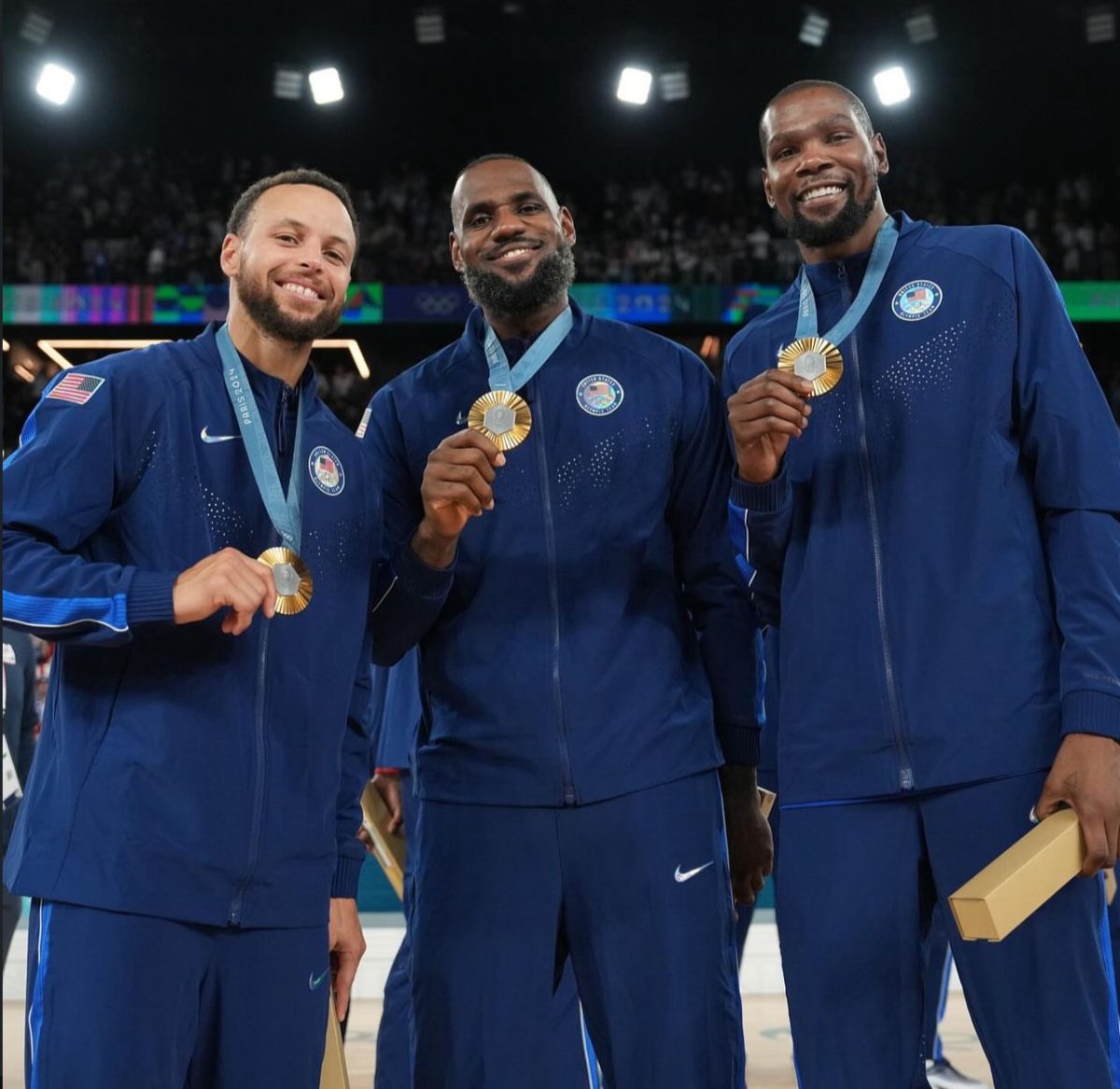After a thrilling gold-medal match against Victor Wembanyama-led Team France, Team USA captured its eighth consecutive gold, earning the ever-coveted “world champion” moniker. But do the NBA Champion Boston Celtics have a claim to the same title?
According to fellow Olympic champion Noah Lyles, they don’t. Lyles snatched first in the 100-meter and third in the 200-meter in Paris earlier this August, but made headlines last August when he expressed frustration over NBA teams describing themselves as world champions upon winning the NBA Finals: “You know the thing that hurts me the most is that I have to watch the NBA finals and they have ‘world champion’ on their head. World champion of what? The United States?”
The NBA hosts 30 teams, 29 of which are based in the U.S. Though the league is not exclusive to American players, a majority of its athletes are born in the U.S. In 2023, the league boasted a record 125 foreign-born players on opening-day rosters — that’s about 28% of the league’s 450 athletes.
Even with record numbers of international players in the NBA, why is the league so dominated by Americans? The answers are fairly simple: locality, resources and exposure. As such, most of basketball’s biggest names are from the U.S, and America has seen unparalleled success during Olympic tournaments (they’ve won gold 17 out of 21 times in the men’s basketball event). Does this asymmetry in talent make the NBA “America’s league,” though, or is the association truly the league where the best in the world compete?
While leagues in Europe, Africa and Asia contain ever-increasing talent, the NBA remains undoubtedly the world’s premier basketball league. Look no further than this year’s Olympics for proof. As players duked it out to be crowned “world champions,” it was NBA talent that buoyed the world’s best rosters toward medals.
The All-Olympic first team featured LeBron James, Kevin Durant, Victor Wembanyama, Nikola Jokic and Dennis Schroder. The list includes two Americans — James and Durant — alongside three global talents. What the five have in common: a spot on an NBA roster. Going deeper, the All-Olympic second team had five foreign-born players: Giannis Antetokounmpo, Bogdan Bogdanovic, Franz Wagner and Guerschon Yabusele. Of these five, only Yabusele doesn’t play in the NBA.
However, that’s not by choice. The former first-round selection out of France struggled to establish himself on the Boston Celtics before failing to make an NBA roster after two years in the league. After his silver medal-winning Olympic performance, he expressed his eagerness to rejoin an NBA squad.
By this metric, one could say that even the world’s best non-NBA player wants to play in the NBA. With the NBA being this desirous to players across the globe, it’s hard to fathom how the association’s champions don’t warrant the words “world champion” printed across their chests.
Circling back to talent within the NBA, a look at the top of MVP award ladders shows that, while international athletes make up a minority of the league’s player base, a plurality of the league’s very best have imported their talents from overseas. This past year, France’s Wembanyama was the top selection in the NBA draft. In recent years, Cameroon’s Joel Embiid, Greece’s Antetokounmpo and Serbia’s Jokic have brought home MVPs. International prospects like Shai Gilgeous-Alexander and Luka Doncic have earned All-NBA First Team honors and rank among the league’s top scorers and playmakers.
There’s no question that the NBA derives much of its talent from outside US borders, but this still leaves us to wonder: do NBA champions have the right to proclaim themselves world champions?
Let’s deconstruct the meaning of this title: The NBA is a league based in the United States and Canada — that’s two of the world’s 195 United Nations-recognized countries. Though the league isn’t worldwide in locale, it does roster the world’s best talent, as evidenced by NBA players’ dominance during international events like this year’s Olympics.
As such, the NBA champions are champions among the best players in the world — hence, world champions. They are, by other assessments, champions of a league with teams in just 1% of the world’s nations, and just 3.8% of the world’s surface area — hence, champions of America and Canada or, more simply, NBA champions.
Whether the NBA’s diverse sources of talent and status as the world’s best league gives way for its champions to be considered champions of the world is truly a matter of perspective. Lyles is right that the NBA is more or less just an American league in regards to its geography, but he’d be misinformed to suggest that it is just a league of America’s best talent.
The NBA is where the world’s best dream of playing, and the NBA is where champions are crowned having defeated the world’s best competition. Can NBA champions of past, present and future really dub themselves “world champions,” though? The debate sparked by Lyles’ quote shows that an NBA team’s right to the title is convoluted and that the parameters defining a “world champion” are varied and disputable.
What’s the big deal, after all? It’s just words on a shirt. If calling NBA champs, “world champs,” is too controversial, we can always print new shirts that say “Champions of the best league in the world with the best players, but that isn’t exactly an international league by certain geographical standards despite its plethora of international talent” or something similarly pleasing to the ear.






































































































































































































